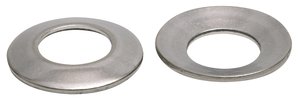Hi everyone ,
could it be possible that an faulty jfet drives out the dc offset ??
on one channel my offset goes to 18 v , I replace the irfp 240 , the zener , I check all the resistor , and the solder joint are ok , but I am unable to test the jfet .
the bias is ok , 0.520 v , P2 is working , but rotating P1 does not do anything !!
Tanks for your help
.
could it be possible that an faulty jfet drives out the dc offset ??
on one channel my offset goes to 18 v , I replace the irfp 240 , the zener , I check all the resistor , and the solder joint are ok , but I am unable to test the jfet .
the bias is ok , 0.520 v , P2 is working , but rotating P1 does not do anything !!
Tanks for your help
.
Last edited:
The Jfets are not direct coupled to the output devices, so they would not
normally be the source of DC offset.
normally be the source of DC offset.
the bias is ok , 0.520 v , P2 is working , but rotating P1 does not do anything !
Which value of Zener are you using? It may have to be larger.
I use the 1n 4735 , these are 6.2 v , 1 w , 5%
the amp is working very good from almost a year .
.
the amp is working very good from almost a year .
.
Last edited:
I use the 1n 4735 , these are 6.2 v , 1 w , 5% the amp is working very good from almost a year .
So it just recently started having a large output DC offset? Do both Zeners measure 6.2VDC
across each when working in the circuit?
Last edited:
Zener tension are ok , I change one more time the output and it works fine .
this is the second time I have an faulty Vishay irfp 240 from Mouser !!
.
this is the second time I have an faulty Vishay irfp 240 from Mouser !!
.
be sure that they're fastened well enough to heatsink and that there is no more than 10C difference between mosfet body and heatsink just near by
that'll give you info how good temperature interface is
that'll give you info how good temperature interface is
Also use spring washers
I used large flat washers in mine, and it stays below 5 degrees sink/transistor difference. What is the advantage of spring washers? More even pressure?
FWIW, we're not talking about split-washers here as they will give uneven pressure:

The "proper" thing is a Belleville washer, which is conical:

Sadly, they're not cheap. But they do keep pressure through temperature cycles.

The "proper" thing is a Belleville washer, which is conical:

Sadly, they're not cheap. But they do keep pressure through temperature cycles.
He he... I'm prejudiced. In my racing days we went by the maxim:
- If you want something not to come undone, use a Nyloc, K-nut, or Loctite.
- If you want to apply pressure through temp cycles, use a Belleville.
- If you just want something to be heavier, use a split washer or star washer.
- Status
- Not open for further replies.
- Home
- Amplifiers
- Pass Labs
- F6 issue